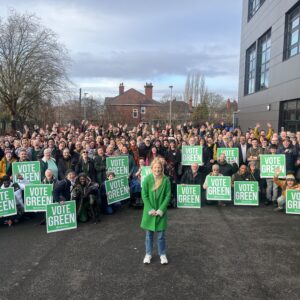Marx’s understanding of ideology
In his earlier theory of alienation, Marx showed how workers under capitalism are estranged from the products of their labour and from their essential human potential for creativity and community. Later, in The German Ideology, Marx conceptualised society as divided into a material economic base that shapes a cultural and political superstructure. For Marx, ideology emerges from and reinforces the material conditions and class interests. The ruling bourgeois ideology justifies elite prosperity as natural and beneficial while workers internalise this false consciousness against their own class interests. In Capital, Marx called for critique to expose ideological systems that obscure real relations of oppression and exploitation. Later Marxists like Althusser built on this through theories of Ideological State Apparatuses, showing how institutions like schools, media and religion perpetuate capitalist ideology. Gramsci expanded on cultural hegemony, where elites gain consent through cultural and political leadership over civil society. In this analysis, the working class must develop counter-hegemony and class consciousness to challenge capitalist ideological domination. Marxist ideological critique remains relevant for exposing the obfuscating belief systems around neoliberal capitalism today.
Conspiracy theories as expressions of alienation
Marx’s theory of alienation described how capitalism deforms social relations and disconnects workers from their labour and species essence. With declining community and solidarity under globalised capitalism today, individuals experience profound anxiety and inability to comprehend complex networks of power. Conspiracy theories offer alluringly simple explanations for intense feelings of powerlessness by blaming scapegoats like Jews, elites or immigrants. This displacement provides an outlet for frustration but misdirects away from critiquing underlying systemic causes like class exploitation.
“Conspiracy theories offer alluringly simple explanations for intense feelings of powerlessness by blaming scapegoats like Jews, elites or immigrants.”
Conspiracy ideation reflects a distorted desire for agency in the face of bewildering domination by abstract forces like capitalism or technology. Yet real social critique requires demystifying reified power structures, uncovering their basis in concrete conditions of production and class contradiction. For Marx, only class consciousness allows recognising economic exploitation as the essential cause rather than imagined conspiracies. Overcoming alienation requires building solidarity across identities to collectively challenge systemic oppression, not just targeting phantoms invented to divide the working class and prevent unity.
Conspiracy theories displace blame
Marxist analysis reveals how conspiracy theories redirect legitimate structural grievances under capitalism onto convenient cultural scapegoats, obscuring the economic system itself as the fundamental source of social harms. Reactionary conspiracies blame Jews, immigrants, minorities as devious threats undermining society, feeding xenophobia and nationalism, fracturing class solidarity across racial lines. By locating the cause of problems in mythic conspiracies rather than material conditions, conspiracism prevents radical critique of underlying contradictions. Some fascist ideological strains use conspiracies of ethnic subversion to uphold traditional hierarchies, defend unequal class relations, and condemn progressive movements as conspiracies against the “natural” order. Paranoid theories about controlling elites imply the antidemocratic need for authoritarian leadership to suppress imagined threats. Distrust in institutions would be better directed into ethical critiques of real abuses of ruling power and mobilisation to transform systemic class oppression.
“Marxist analysis reveals how conspiracy theories often serve as distorted forms of resistance that ultimately uphold ruling class ideology and power structures.”
Conspiracy theories as false consciousness
Marxism uncovers ways conspiracy theories often perpetuate false consciousness and protect capitalist interests by obscuring class relations. Belief in conspiracies frequently defends traditional institutions that prop up ruling elites while directing suspicion at progressive movements for equality as sinister plots. Appeals to nativism, racism and fear mongering about subversive threats indicate thought that mystifies reality rather than demystifying actual relations of domination. They represent misguided forms of resistance that uphold working class subservience to elite interests. However, the profound distrust motivating many conspiracies also reveals flaws in the mythology of harmonious liberal democracy under capitalism. This distrust contains valid scepticism towards corrupt structures of power and the ideological mechanisms that justify them. Here the seeds of ethical resistance exist, requiring redirection away from reaction and scapegoating towards exposing actual unjust exercise of ruling power against the disenfranchised.
Pandemic Conspiracism Captures the British Working Class
The COVID-19 pandemic has provided fertile ground for reactionary conspiracies to proliferate rapidly among the working class in the UK. Anti-vax tropes demonising vaccines as tools of government control quickly gained traction. Baseless theories linking 5G to the virus’s spread likewise tapped into technophobia. Vilification of public figures like Bill Gates as orchestrating the pandemic to profit from vaccines exploits economic anxieties. Climate change denial also persists, with conspiracies dismissing environmental crisis as a hoax to impose regulatory burdens. These tropes gain resonance by scapegoating scientific authorities and tapping working class distrust of elite institutions. Yet widespread adherence to such theories indicates the failure of Marxists in fostering class consciousness and solidarity around shared material concerns. Instead conspiracists have filled this void, redirecting legitimate populist frustrations over inequality and disempowerment into reactionary narratives that obscure the real economic forces exploiting the pandemic for profit and control. Reclaiming the political high ground will require urgently countering these tropes to reveal the actual capitalist interests benefiting from ongoing crises.
Furthermore, the proliferation of conspiracies in the UK during the pandemic has provided fertile ground for right-wing populists to exploit working class fears. Reactionary tropes that scapegoat immigrants, elites, and scientific authorities pave the way for authoritarian demagogues. These leaders1 build followings by redirecting conspiracy-primed distrust against marginalised groups labelled as “foreign threats” undermining British prosperity and identity. Right populists also capitalise on anti-establishment sentiments by promising to purge corrupt elites impeding the “real British people.” This narrative provides an appealingly simplistic explanation for complex social strains.
Yet in reality, these divisive views fracture the working class solidarity necessary to challenge the true economic forces exploiting systemic crises. The rise of conspiracy theories and subsequent susceptibility to populist fear mongering reflects the failure of the Left to build a counter-hegemonic movement addressing inequality and disenfranchisement. Reasserting an emancipatory class politics will require not just debunking reactionary tropes but articulating an inspirational vision of justice and progress.
“The rise of conspiracy theories and subsequent susceptibility to populist fear mongering reflects the failure of the Left to build a counter-hegemonic movement addressing inequality and disenfranchisement.”
Distrust as potential source of resistance
The widespread distrust towards dominant institutions in many conspiracy theories indicates legitimate grievances with the failed promises and ideals of liberal capitalism. However, conspiracy ideation alone does not sufficiently reveal class consciousness or motivate collective mobilisation against systemic injustice. Still, this distrust may perhaps be redirected from imaginary cultural threats towards uplifting marginalised groups and exposing real unethical abuses of ruling power against the oppressed. Progressive conspiracies may validly reveal oligarchic tendencies and systemic minority rule in nominally democratic systems. However, true resistance requires not just suspicion alone, but organised mass movements, activism, community building and networks of solidarity across identities to challenge policies and transform material conditions of exploitation. Distrust of power must be paired with grassroots populism and the class consciousness to locate the economic forces of oppression.
Conspiracies of the Powerful: Uniting the Marginalised for Liberation
Marxist analysis reveals how conspiracy theories often serve as distorted forms of resistance that ultimately uphold ruling class ideology and power structures. While the profound distrust behind conspiracism springs from valid grievances, merely targeting scapegoats obscures the fundamental economic basis of oppression. For contemporary Marxists, countering reactionary conspiracies will require redirecting popular distrust away from imaginary cultural threats towards demystifying and critiquing real systemic injustices. This demands building class consciousness and mass solidarity across identities to recognise economic exploitation as the essential cause. Only through organised collective action against policies and institutions that enable elite minority rule can the seeds of resistance within conspiracy distrust be transformed into an emancipatory force for radical systemic change. The task for Marxists is to foster this class awareness and solidarity, unveiling the concrete conditions of inequality while articulating an inspirational counter-hegemonic vision of shared prosperity and liberation.
Footnotes
- While providing convenient scapegoats, these small-l populist leaders (Tice, Fox, Bridgen etc.) lack the commanding political power or cult of personality exhibited by a figure like Donald Trump in the United States. ↩︎
Art (55) Book Review (127) Books (114) Capitalism (68) China (81) Climate Emergency (99) Conservative Government (90) Conservative Party (45) COVID-19 (46) EcoSocialism (60) Elections (83) Europe (46) Fascism (63) Film (48) Film Review (68) France (72) Gaza (63) Imperialism (101) Israel (130) Italy (46) Keir Starmer (56) Labour Party (113) Long Read (42) Marxism (49) Marxist Theory (47) Palestine (184) pandemic (78) Protest (154) Russia (343) Solidarity (152) Statement (50) Trade Unionism (144) Ukraine (351) United States of America (140) War (371)
Latest Articles
- Victory for Six Elbit activistsDave Kellaway celebrates a victory for Elbit Palestine Action activists and discusses the political implications
- Gorton and Denton by‑electionBert Ratcliffe reports from Manchester on the by-election and difficulties within Your Party
- Together protest on 28 March – The fightback against the far right gathers paceThe dramatic growth of support for Reform – driven by a racist platform – and the 150,000 that turned out for Tommy Robinson’s Unite The Kingdom (UTK) demo,show we are in a dangerous period write Terry Conway and Simon Hannah.
- Elections and the Anti‑fascist StruggleWith the foundation of Your Party and Zack Polanski’s victory in the Greens’ leadership election, combined with the surge of support for Reform UK, the importance of elections in combating fascism and the hard right comes to the fore. Phil Hearse investigates.
- Review: Britanahay Բրիտանահայ: Armenian and BritishAre you frequently in central London with time to kill? I am. One of the things I enjoy doing in those circumstances is popping into a gallery or museum, writes Terry Conway.






